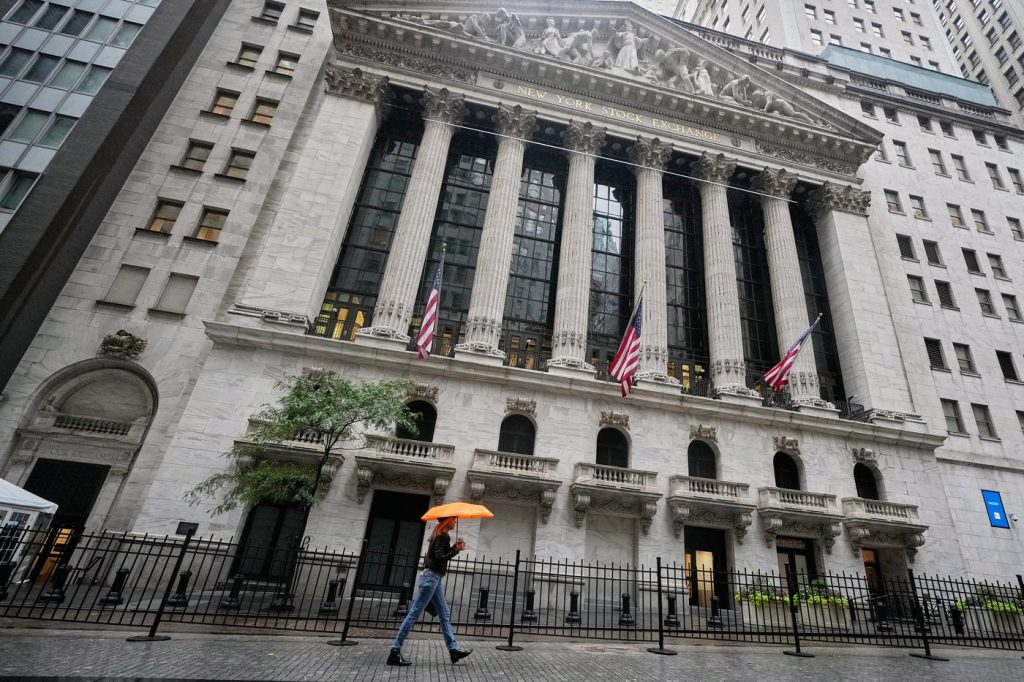MANILA, Philippines (AP) - Asian shares experienced mixed performances as the U.S. stock market declined from its record highs. Wall Street analyzed a variety of developments, notably trade relations with China and the profits reported by major technology companies.
In the pre-market, U.S. futures showed positive movement while oil prices witnessed a decline.
During a recent talk with China's leader, Xi Jinping, President Donald Trump acknowledged a positive dialogue but expressed ongoing concerns about the persistent tensions between the two largest economies in the world.
Japan's Nikkei 225 index surged 1.7%, reaching 52,201.05, as it hit new record heights following data that revealed a 2.2% increase in industrial production month-on-month for September, which surpassed market expectations after a previous decline of 1.5%.
Conversely, in Chinese markets, Hong Kong's Hang Seng index dropped by 0.9% to 26,050.08, and the Shanghai Composite index fell 0.6% to 3,963.01. Recent data showed that factory activity in China contracted for the seventh consecutive month in October, as the official NBS Manufacturing PMI declined to 49.0 from 49.8 in September.
Other Asian markets showed slight gains, with South Korea's Kospi rising by 0.4% to 4,105.81, Australia's S&P/ASX 200 increasing by 0.2% to 8,903.50, and Taiwan's Taiex gaining 0.5%.
Amidst this backdrop, the U.S. stock market experienced a downturn. On Thursday, the S&P 500 fell by 1% to 6,822.34, moving further away from its all-time high set just two days prior. The Dow Jones Industrial Average saw a slight decline of 0.2% to 47,522.12, while the Nasdaq composite dropped by 1.6%, concluding at 23,581.14.
Global stock markets were mixed, influenced by the much-anticipated discussions between the leaders of the U.S. and China. Trump rated his meeting with Xi positively, scoring it a 10 on a scale of zero to ten, indicating he would consider reducing tariffs.
However, the stock market had already surged to record levels based on expectations of potential improvements in trade relations between Beijing and Washington. Additionally, profits from major tech companies were under scrutiny, with Meta Platforms experiencing an 11.3% drop, which significantly impacted the S&P 500. This decline cut into what was a notable 28.4% gain for the year. Analysts noted that investors might have been unsettled by Meta's plans to increase spending significantly by 2026, with concerns about the long-term profitability of such investments.
Stephen Innes of SPI Asset Management commented on the current market dynamics, stating, "There are moments in market history when capital stops behaving like money and starts acting like obsession—the spending becomes the strategy rather than the consequence."
Microsoft also faced challenges, dropping 2.9% despite reporting stronger-than-expected profit and revenue for the latest quarter. Analysts pointed out that Microsoft's anticipated spending in 2026 would exceed its investments in 2025, which, coupled with slightly disappointing growth in the Azure business, affected investor sentiment.
On a positive note, Alphabet, Google's parent company, saw its shares increase by 2.5% after reporting a robust profit and revenue that surpassed analysts' expectations for the current quarter.
The performance of these key companies is crucial for investors, as Alphabet, Meta, and Microsoft collectively represent 14.5% of the total value of the S&P 500 index. Their fluctuations can significantly influence the performance of numerous other stocks within the index.
In other market movements early Friday, U.S. benchmark crude oil prices fell by 42 cents to $60.15 per barrel, while the international standard, Brent crude, also saw a decline of 42 cents, settling at $63.95. The U.S. dollar depreciated against the Japanese yen, falling to 153.95 from 154.14, while the euro climbed to $1.1573 from $1.1566.











